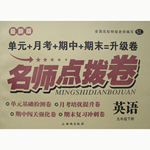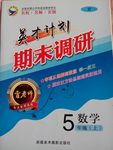题目内容
Determined not to fall behind, Alex now spends ________ as he used to on physics, his weakest subject.
A. twice as much time B. as twice much time
C. twice much time as D. as twice time much
练习册系列答案
 名师点拨卷系列答案
名师点拨卷系列答案 英才计划期末调研系列答案
英才计划期末调研系列答案
相关题目
题目内容
Determined not to fall behind, Alex now spends ________ as he used to on physics, his weakest subject.
A. twice as much time B. as twice much time
C. twice much time as D. as twice time much
 名师点拨卷系列答案
名师点拨卷系列答案 英才计划期末调研系列答案
英才计划期末调研系列答案